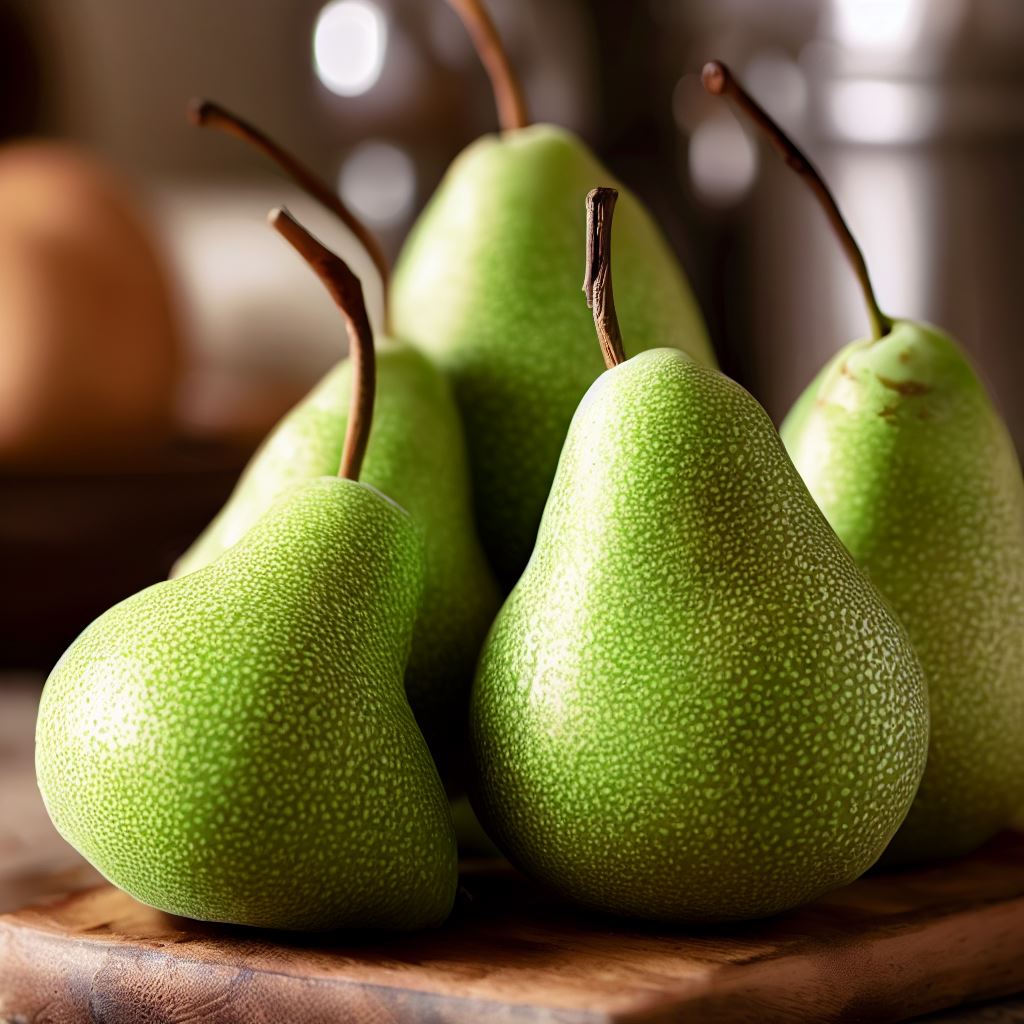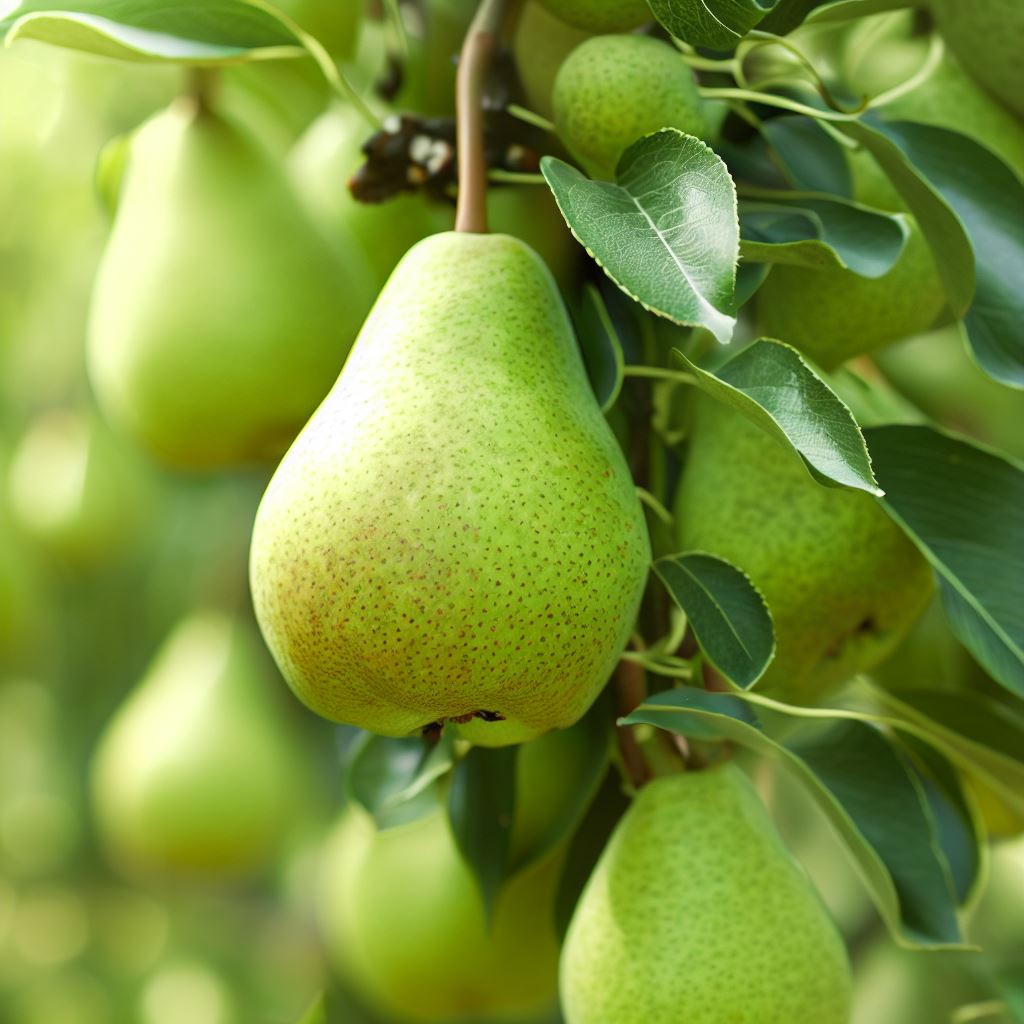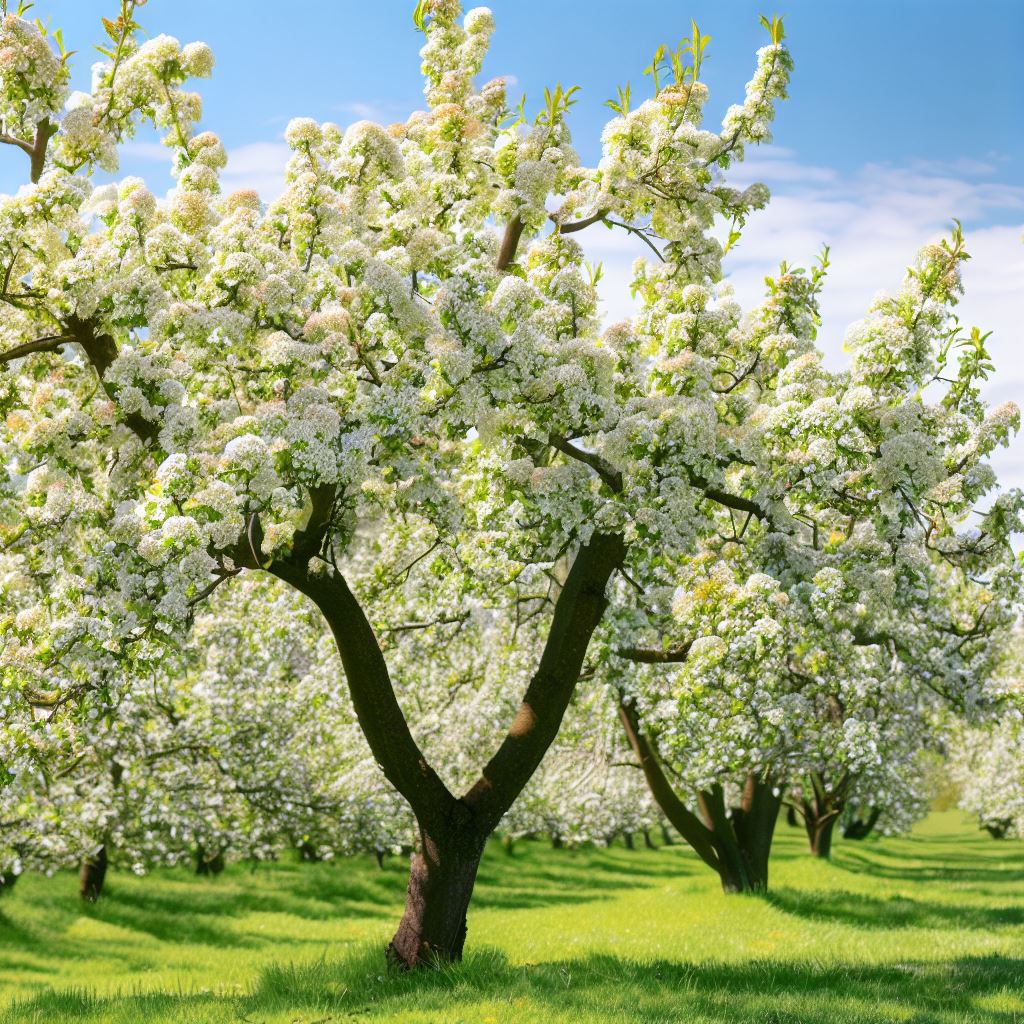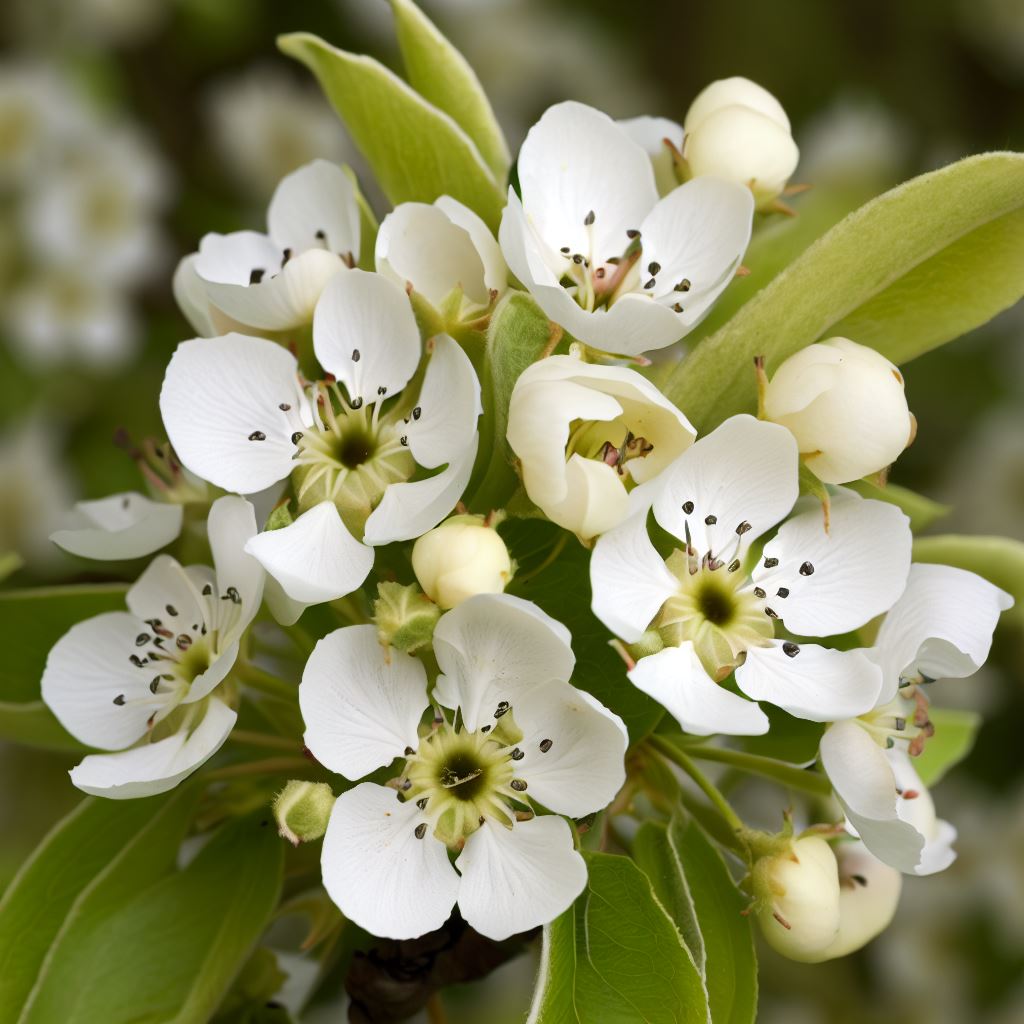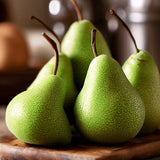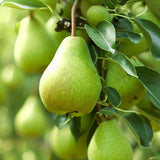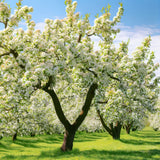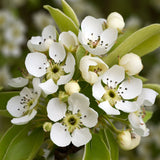Pyrus communis (European Pear, Domestic Pear, Common Pear)
Pyrus communis (European Pear, Domestic Pear) is a widely cultivated and appreciated species of pear tree that produces the familiar and delicious fruit enjoyed by people across the globe.
Tree Appearance: Pyrus communis is a deciduous tree that can reach heights of 15 to 50 feet (4.5 to 15 meters) when fully grown.
It has an upright, relatively narrow canopy with ovate to elliptical leaves that are typically dark green and glossy.
Fruit: The fruit of Pyrus communis is the pear, which comes in various shapes, sizes, and colors. Pears can be yellow, green, red, or brown, depending on the variety.
The flesh of the pear is usually sweet, juicy, and can vary from creamy and smooth to slightly grainy, depending on the variety. Pear varieties encompass a range of flavors, from mildly sweet to slightly tart.
Flowering and Fruit Production: European pear trees produce clusters of small, white to creamy-white flowers in the spring, often before or during the emergence of new leaves. The fruit of Pyrus communis typically matures and is ready for harvest in late summer to early fall, though the exact timing varies depending on the specific pear variety and growing conditions.
Culinary Uses: European pears are consumed fresh, both as a standalone fruit and in various culinary applications, including salads, desserts, preserves, jams, and baking.
They are also used in the production of pear-based products like pear juice, pear brandy, and pear liqueur.
Health Benefits: Pears are known for their nutritional value, offering dietary fiber, vitamins (such as vitamin C and vitamin K), and antioxidants. They can promote digestive health and have other potential health benefits.
Ornamental Value: In addition to their fruit-bearing qualities, European pear trees are sometimes grown for their ornamental value, featuring attractive white blossoms and foliage.
European pears have a long history of cultivation and remain a beloved and versatile fruit that is enjoyed in various forms around the world. The diversity in flavors and textures among different pear varieties makes them popular among fruit enthusiasts and culinary experts alike.
Botanical Name : Pyrus communis
Common Name : European Pear, Domestic Pear, Common Pear
Height : 15-50 ft
Spread : 10-30 ft
Germination Info : Seed requires 90 days cold moist stratification
Hardiness zone : 5 and UP
Average seed per ounce : Approx. 875

